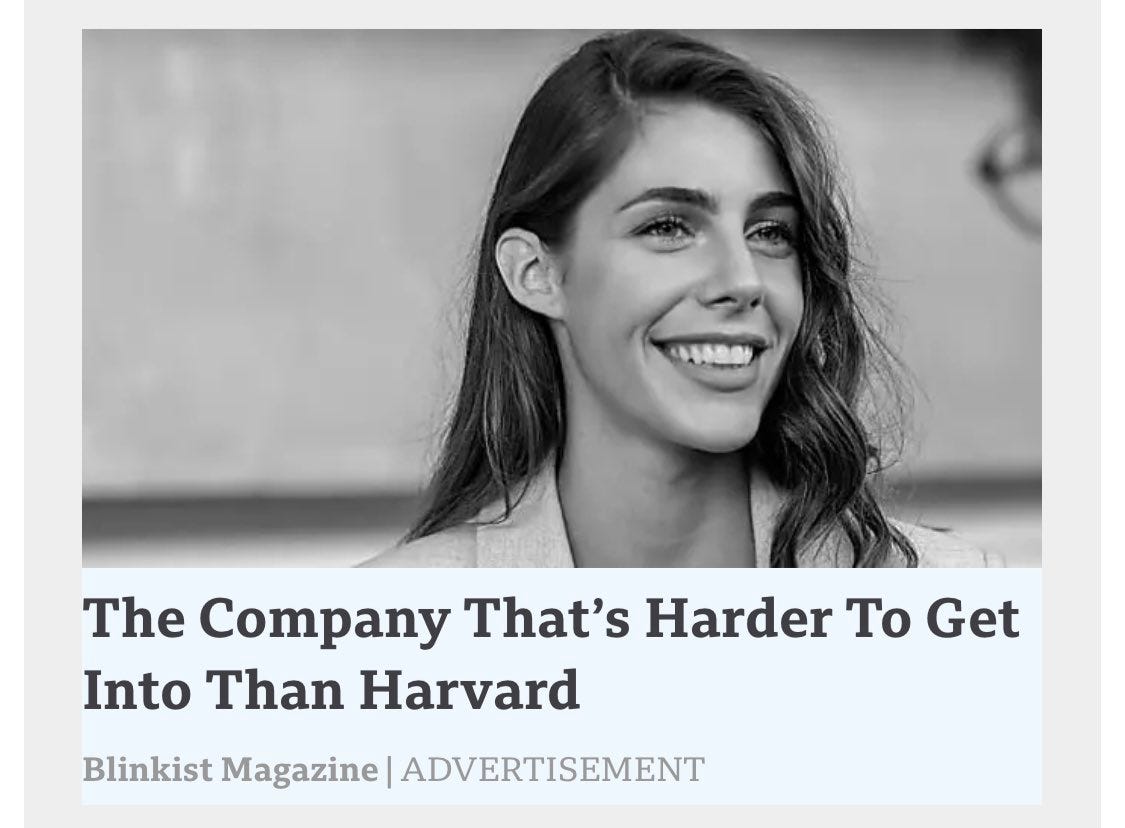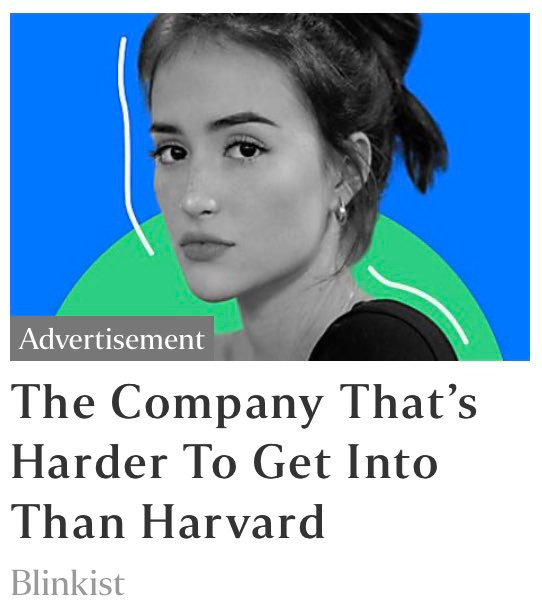There’s a targeted ad that keeps popping up on my Google. I bet you’ve seen it too. It is the most ridiculous of all the ridiculous targeted ads I see. It says “the company that’s harder to get into than Harvard” and features a beautiful young woman, with a winning smile, her gaze fixed slightly upwards off-camera.
Here it is:
It also comes in another, sultrier variety:
There is so much wrong with this ad.
Let me break it down.
First of all, I don’t even know what it wants from me. Is it a job offer? Is it offering me its services (whatsoever they might be)? Who knows. I assume the ambiguity is intended to annoy, to piss people off, to engender some response (even negative) in order to stall the endless scrolling.
We’re such an enigma, you don’t even know what we are! Here is a picture of a self-sure woman, too beautiful and clever for her own good. Quick, why don’t you stop and hate/perve/puzzle on her for a second! Oh, while I have your attention, check out our stupid company that summarises books for you so you never have to long-read anything ever again. Doesn’t that sound awful? Now why don’t you go write a Substack about how annoying this ad and our company is, thereby obliquely affording us even more indirect publicity (we know your readers will google us, thanks for the stats).
See? I am so annoyed at myself for taking the bait.





